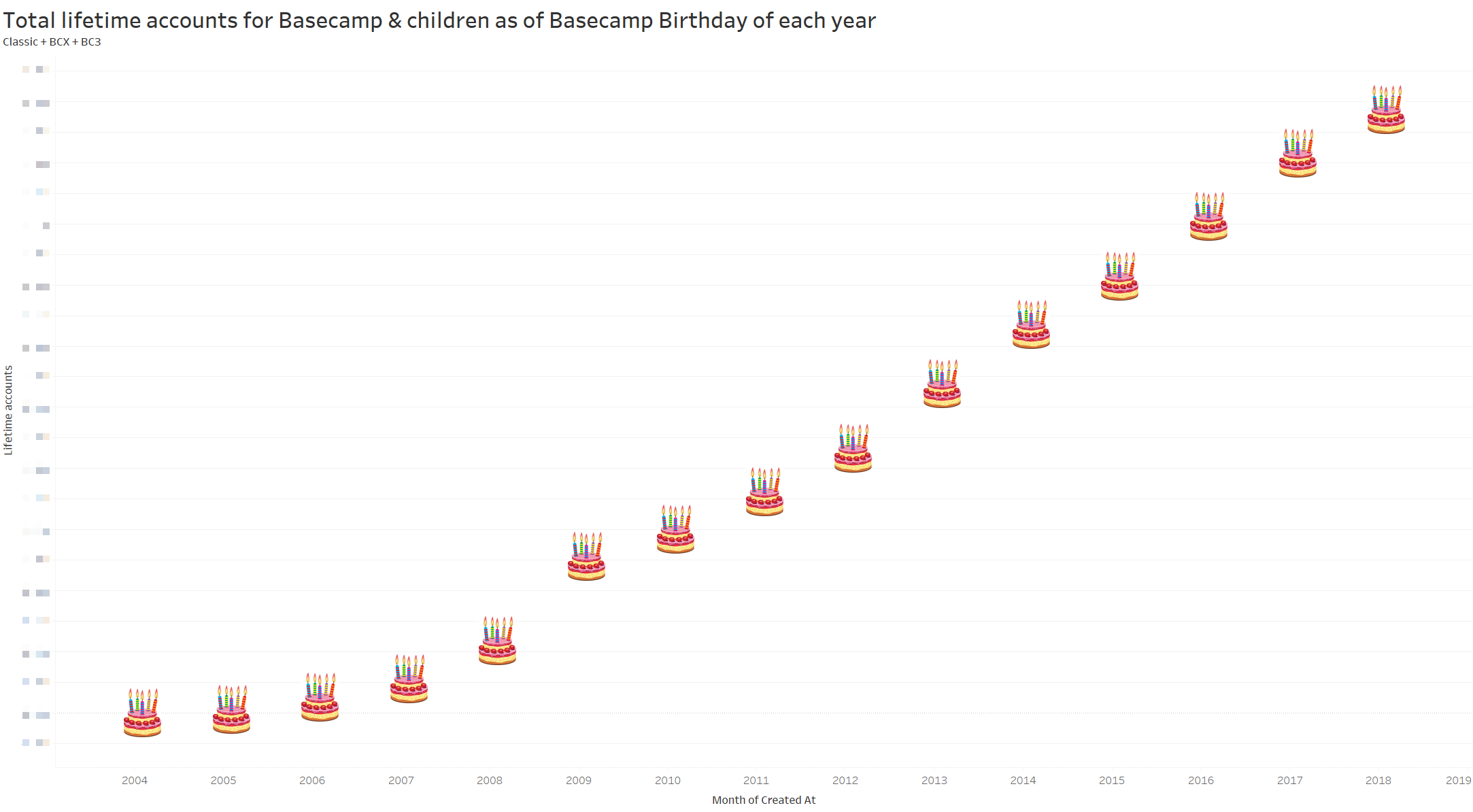
Exponential growth gets all the glory. Every startup story that lands on the cover of a magazine has a hockey-stick chart to flaunt. Yes, disruption is driven by such violent expansion, and the world needs some disruption some of the time. But for the other 360 days out of the year, what it also needs is some modest, linear growth.
Linear growth is what happens in domains that aren’t animated by network effects (and when no artificial growth hormones are injected!). It’s the simplicity of good products sold at reasonable prices that find happy customers. These customers talk to friends and colleagues in other businesses, and over time that word of mouth spreads the good vibes, which turns the business up.
But the limelight has no patience with such simple, slow methods as word of mouth. It’s not infectious enough. Not exponential enough. That’s a shame.
Because the world is full of problems that needs solving by people who are willing to put in the work for the long haul. I’m not talking about the freakish 120-hour/week, seven-year death marches, but the patient, sustainable work that might last a lifetime. Problems that yield better to people sticking with it.
These problems rarely provide the world with more platforms, but the world has enough platforms. If everyone wants to be the foundation, then there’s nobody left to serve as the beams or cladding or tiles. That’s a recipe for a concrete and corporate wasteland.
It’s also a recipe for monoculture. Network effects have given us spectacular stories of unfathomable growth, but it’s also given us monopolistic conglomerates that poison the market and its variety.
I’m no particular fan of advertisement, but it’s still clear as day that the world is much worse off for having all the value of that trade captured solely by Facebook and Google. Yeah, that’s disruption, and no, it’s not the kind that makes the world better off. It’s creative destruction without creative regeneration. More black hole, less forest-fire cleanse.
Capitalism as a system is prone to all manners of dysfunction, but few are as fatal as that of monopolies backed by exponential growth. Markets as a force for good quickly break down and get perverted when only a few power players remain to call all the shots.
Maybe such concentration is “natural” in a few domains, but that doesn’t mean we should stand idle by and let it corrupt both business and society. In an era past, trust busters knew how to protect the common good by opposing the behemoths of industry with antitrust fights and laws. AT&T had a “natural” monopoly, and it still deserved to be broken up. Such memories are unnecessarily quaint now, and even when brought up, it’s through a myopic literal lens (Facebook + Google aren’t causing “higher prices”, therefore they’re not bad monopolies. Bullshit).
But the discussion of whether the regulators will once more mount up shouldn’t distract us from doing what we can today. Which is to inspire a new generation of entrepreneurs to nobler goals than simply to become caliph instead of the caliph.
Which is pretty much all the business press and other spectators (and speculators) are obsessed with these days. Who’s going to be the next Google? The next Facebook? The next Apple? These are interesting questions, but they’re not the only questions, and by posing them over and over again ad nauseum, we’re restricting the conversation and constricting our imagination.
What if the next NEXT THING wasn’t a supplementation of an existing network-effect megacorp, but a proliferation of a thousand or million smaller businesses that were given the time and place to breathe and thrive?
But for that to happen, it needs not only to be seen as feasible, but desirable. That to eschew the exponential demands of investors is a sign of strength, not a mark of weakness. That to be content with linear growth is streak of independence, not absence of vision.
We are in dire need of such reprogramming of the entrepreneurial boot loader. So many faithful decisions are taking in the early stage of a business that locks its course for perpetuity. Very few ventures get to turn back the clock and have a do-over on their cap table. Epiphanies that come too late might as well not come at all.
You can’t move a tree by blowing at it softly once the roots are down. But you can radically change where a seed will land by doing the same.
I promise I’m not trying to make a lame plea for “children are the future”, although that’s both trite and true. New businesses are started by adults of all ages. Every single one of them have the power to pick how they’ll nurture their growth when it’s started. Choosing to chase the exponential is just that, a choice. Which also means that choosing the linear is a choice too.
Which I guess is really my chief argument here. Or appeal, even. That more people choose the path of linear growth. That they embrace it with vigor and pride. That they make no apologies for wanting a modest and sustainable business that can live in harmony with other shops of the same description.
The path of linear growth has been the trajectory of Basecamp for 14 years today. It’s brought beauty and warmth to millions of people who’ve used our product. It’s brought stability and a home to the fifty-odd people we employ at the company. And it’s brought the deepest of meanings and satisfaction to Jason and I for owning it.
May you make your own fortune as you take a swing at the same.
Does this tickle a fancy? Stroke a nagging? I’m sure you’d like my other writings on the topic, then. Start with RECONSIDER, then Exponential growth devours and corrupts, then maybe Enough. Well, my whole back catalogue is full of these kind of ideas, really. So do dive in.

